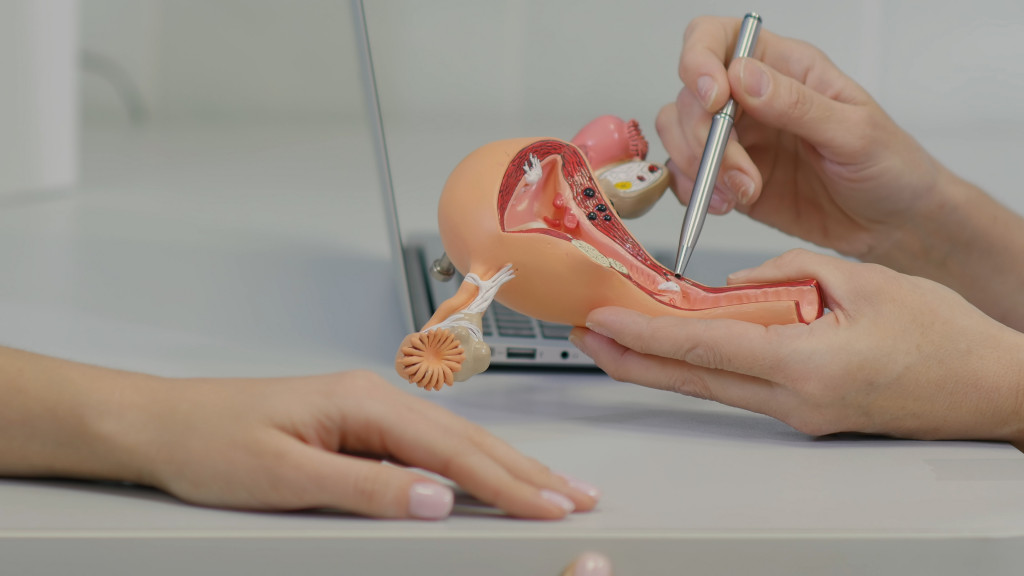Sexual and reproductive health is an essential part of overall women’s health. It encompasses various issues, from contraception and pregnancy to sexually transmitted infections (STIs) and cancer. Proactive self-care is crucial to maintaining sexual and reproductive health. This blog will explore different sexual and reproductive health aspects and what women can do to keep themselves healthy.
Sexual Health
Good sexual health is more than just the absence of disease—it also means having a satisfying and enjoyable sex life. There are many things that can impact sexual health, including medications, stress, relationship problems, and body image issues. To maintain good sexual health, it’s important to:
Get Regular Checkups and STI Screenings
Be open and honest with your healthcare provider about your sexual activity and any concerns you have. This way, they can provide the best possible care for you. It’s also important to get regular STI screenings, even if you don’t have any symptoms. Some STIs, such as chlamydia and gonorrhea, can be easily treated with antibiotics. However, if left untreated, they can cause serious health problems, including infertility.
Use Protection
Using condoms is one of the best ways to reduce your STI risk. If you’re not in a monogamous relationship, be sure to use condoms every time you have sex. If you are in a monogamous relationship and both partners have been tested for STIs, you may choose to forego condoms. However, if either of you has ever had an STI, it’s important to use protection to reduce the risk of re-infection.
Talk About Your Sexual Health
It’s important to talk about sexual health with both your sexual partners and your healthcare providers. Discussing sexual health can be awkward, but it’s essential to maintaining a healthy sex life. Open communication will help you and your partner(s) make informed decisions about sex, including what activities are safe and how to protect yourselves from STIs.
Reduce Anxiety and Stress
Stress and anxiety can both have a negative impact on sexual health. Stress can lead to problems with arousal and orgasm, while anxiety can cause erectile dysfunction. Try relaxation techniques such as yoga or meditation to reduce stress and anxiety. You can also try target=”_blank” rel=”noopener noreferrer”different remedies for female arousal to help you with sex-related stress.

Reproductive Health
Sexual and reproductive health are closely linked, but they are not the same thing. Reproductive health focuses on fertility, pregnancy, and childbirth. It’s important to maintain good reproductive health so that you can have a healthy pregnancy and delivery. There are many things you can do to take care of your reproductive health, including:
Get Regular Checkups
See your healthcare provider regularly, even if you’re not planning on getting pregnant. This way, they can catch any problems early and help you stay healthy. You should also get regular Pap smear tests to screen for cervical cancer. This test is usually done every three years, but your healthcare provider may recommend more or less frequent testing based on your individual health risks.
Know Your Body
It’s important to know your own body so that you can identify any changes early. This includes knowing what’s normal for your menstrual cycle and being aware of any changes in your breasts or genitals. Don’t hesitate to see your healthcare provider if you notice any changes.
Be Proactive About Your Health
While you can’t control everything, there are many things you can do to reduce your risk of fertility problems, pregnancy complications, and other reproductive health issues. Eating a healthy diet, regular exercise, and avoiding tobacco and excessive alcohol play a role in reproductive health.
Talk to Your Healthcare Provider About Your Birth Control Options
You have many different options when it comes to birth control, so it’s important to talk to your healthcare provider about what’s best for you. Short- and long-term options are available, so you can choose the method that fits your lifestyle and needs. Some methods, such as the pill, can also offer other benefits, such as reduced period cramps or fewer acne breakouts.
No matter what your sexual orientation or gender identity, it’s important to take care of your sexual and reproductive health. You deserve to have a healthy and satisfying sex life, free of anxiety, stress, and STIs.
The Bottom Line
Sexual and reproductive health are both important aspects of overall health. Be sure to get regular checkups, use protection, and talk to your healthcare provider about your sexual health. These steps will help you maintain a sex life and reduce your doctor’s STIs and other reproductive health problems. So there’s no need to put off that doctor’s appointment any longer; schedule it today!

